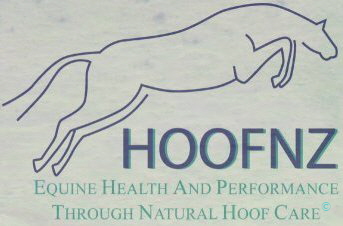|
The information listed below has been found to help horses recover from both acute laminitis and long-term founder.
Where the word horse has been used the information applies equally to ponies, minis and donkeys.
Owners are advised to seek Veterinary assistance if they suspect that their horse is suffering from a medical condition.
Things to change:
Remove the horse from pasture if grass is the suspected laminitis trigger
Lush green grass is not the only type of grass that posses a problem- ‘dead’ dry summer grass and frozen ‘dead’ winter grass are founder traps.
Stressed grasses store carbohydrates.
Carbohydrate sensitive horses will founder on dead summer grass and dead frozen winter grass.
Reduce or eliminate high sugar foods – apples, carrots, molasses, sweetfeeds etc
Feed hay – soak if necessary to remove excess sugars/carbohydrates
Encourage movement by either making a track for the horse to walk around (see Creative Pasturing-Resources page) or add daily hand leading, straight lines, gentle corners, no sharp turns, with protective boots and pads when necessary - minimum of 10 mins 3x a day working up to 30 mins 3x a day until recovered- movement on flat, firm surfaces
Things to feed:
* re-establish mineral balances (Pat Colby mix or other beneficial combination)
* offer free choice natural rock salt (Utah or Himalayan rock salt)
* add magnesium to diet (oxide or aspartate form)
* re-establish gut flora (probiotics)
* feed a toxin binder (mycosorb, EquiGuard or Mycobond)
*contact your vet or feed rep for availability and dosage of supplements
Remedies to consider:
* re-establish stomach ph (apple cider vinegar as a daily drench or in the water trough)
* use Homeopathic Arnica, Willow Bark, Devils Claw or other natural pain relief when needed
* if hormonal issues are suspected Chasteberry fluid extract may be of benefit.
* Herbal or Homeopathic detox may be of benefit
* contact your equine naturopath or holistic vet for availability and dosage of herbs, remedies etc.
Medication:
* phenylbutazone, only if horse refuses to eat, drink and/or move.
3 days on 1 day off
* contact your vet for dosage, treatment etc.
If the horse/pony has not shown an improvement in comfort levels in 3 days,
it is still being exposed to laminitis triggers.
Management:
Place drinking water, feed and hay at ground level
Allow 24-hour turnout-no stabling, yarding or small paddocks
Ensure the horse has at least close visual contact with other horses if it is unable to have physical contact with another horse/horses.
Investigate possible laminitis triggers in the pasture-high carbohydrate, high fructan or high endophyte grasses (see Identification of Common Grasses, Herbs and Safer Grass Resources page)
Ensure minimal use of chemical wormers, insect repellents, drugs, vaccinations etc-many of which are laminitis triggers in sensitive horses
Ensure the horse has regular non-invasive physiologically correct hoof trims
Soak feet in water and apple cider vinegar daily if abscessing (10 mins, up to coronet level)
Allow abscesses to burst out naturally, do not cut out
Allow the horse the time it needs to heal.
Each horse is an individual with differing pain thresholds, immune systems and healing responses.
Each horse dictates their own recovery rate depending on these factors and other environmental conditions
Regular natural hoof care can help foundered horses/ponies/donkeys.
A balanced trim helps the damaged hoofwall and sole grow in with a healthier and stronger attachment to the internal structures.
Trimming in this way can be of great benefit to horses that have foundered from lack of/or incorrect hoof care
This type of founder is recognised as mechanical founder.
Natural hoof care is also highly beneficial in restoring comfort levels and encouraging correct hoof growth in horses that have suffered from metabolic founder.
However it should be noted that if these types of horses/ponies/donkeys do not have the necessary lifestyle changes implemented, they can suffer another laminitic episode and inflammation and damage will re-occur.
Correct day-to-day management of horses/ponies/donkeys with metabolic founder is essential.
Disclaimer: the information presented here is a guide only and is not a replacement for veterinary or naturopathic advice.
Please always seek help from a Health Care Professional if your horse is suffering from any medical condition.
HOOFNZ will not be held responsible for the misuse or misinterpretation of the above information.
|






